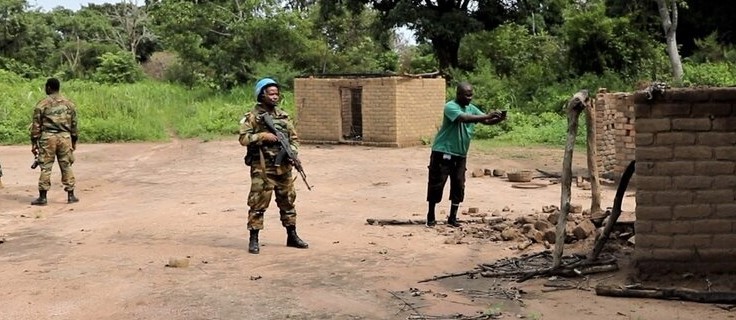The two communities who inhabit Tambura County in Western Equatoria State, the Balanda and Zande, have demanded that the SPLA-IO and forces loyal to renegade Gen. James Nando Mark be immediately relocated out of their county to stop the recent fighting and massive displacement there.
Tambura County has recently been witnessing violence, burning of villages, and mass displacement of people as a result of clashes between the SPLA-IO and forces loyal to Gen. James Nando Mark who defected from the SPLA-IO Division 9B, formerly under leadership of the current Western Equatoria State governor, Gen. Alfred Futuyu of SPLA-IO, to the SSPDF in March 2020.
A three-day community consultation meeting held from 20 to 23 July resolved that Gen. Nando and his forces should be relocated to the SSPDF barracks in Marida and the SPLA-IO forces be moved to the Rurugo cantonment site.
It was also resolved that the political elite hailing from Tambura County but residents in Juba and the diaspora should stop fueling the violence. The communities also called for a separate meeting with the different armed groups which will be mediated by the Community Empowerment for Progress Organisation (CEPO) and UNMISS.
Edmund Yakani, the Executive Director of CEPO, who was a facilitator of the community consultations, told Radio Tamazuj that the meeting resolved to prevent further violence among the communities.
“The consultations resolved that they will reach out to the armed groups that are causing violence to prevent further escalation of violence. It is clear from the consultations that political elites are being blamed for fuelling the violence through manipulating history and using violence among the communities as a ladder for climbing to political power,” Yakani said.
He added that the community consultations resolved that the Tambura Peace Committee, with membership from faith-based leaders, women, youth, traders, political leaders, county authorities, with technical assistance from CEPO, will reach out to the armed groups to bring them together for peace.
For his part, the Executive Director of Tambura County, Natali Cosmos, said that he was very happy with the results of the meeting and that with the help from CEPO and UNMISS Civil Affairs Division, the situation is now calm. He said that the participants will reach out to the other community members and educate them about conflict resolution.
“With this support, it seems like there is no much problem again and we have volunteered ourselves as leaders to meet with those people, the armed groups so that they can understand the situation,” Cosmos said. “We have a request for CEPO and UNMISS, to arrange another meeting that will call the wrongdoers to attend this kind of training (conflict resolution) so that tomorrow they cannot create this kind of conflict in Tambura.”
A community member, Marcella Varanga, who participated in the meeting said, “When the meeting started, we were fearing to attend it, but now in these two days we have learned good things that will help us. Other people ran away due to the stress of what was happening, but now with this dialogue, we have learned a lot. Peace is very important.”
She further appealed to the political elites of Tambura to embrace peace by honoring the resolutions adopted during the three-day community consultations.
Varanga further said, “We don’t want to hear the gunshots again. We don’t want to hear that they have sent guns because when they send us guns, we are just building graveyards instead of building our houses and sending kids to school. Conflict is not a good thing.”
The three days consultative meeting was attended by over 70 participants representing different community groups.




